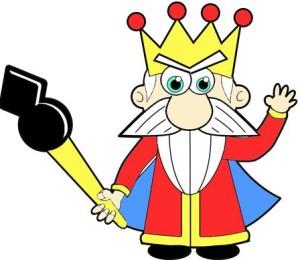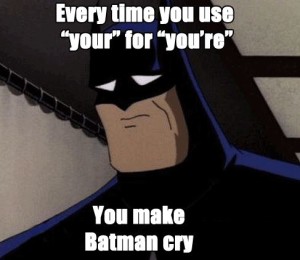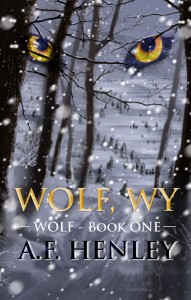What would we ever do without people? The barista, the bartender, the clerks, and the cooks who toil endlessly so that we don’t have to do whatever it is they’re doing for us. Those of you who work in retail and/or customer service do not get the praise that you deserve. I, for one, am ever grateful for your efforts and your patience. I don’t know how you manage it.
Those folks, however, are not who I’m here to talk out. I wouldn’t know where to start. I did my own run of various jobs of that type in younger years and I can assure you that I didn’t last long in them.
However, most of the questions that I get on social media (thank you to those who send them) are about the author’s world. How? Where? When? Why? Well… less of the why then the rest, to be honest. So, I thought I’d take a quick run through the people in an author’s life, and as it turns out, will probably be doing so for the next several posts. (There are more of them than I first thought of when I started this. This doesn’t surprise me, in hindsight. It takes a village and all that jazz.) What do I mean by author’s people? Well, the people that are important to what we’re doing with respect to the words and the craft. Who are they? Why are they? What are they? What do they do and, more specifically, what can we expect them to do for us?
I’m going to start with two of the highest titles in the author’s world: the publisher and the editor.
The Publisher
 A publisher is the High King in the realm of the author’s professional world. They decide who’s staying, who’s not, who gets what contract, and what’s going to be done with the outcome of that contract – the finished novel. It is the author’s job to sell the publisher the work, to convince them through the talent of storytelling and use of the craft that their work is good enough to be put out there. It’s the publisher’s job to look into their crystal ball and decide if you’re right. They get a lot of submissions (far too many, in fact) and much of the work that they do takes place before they ever enter into a contract with an author. They dig through the piles of manuscripts and they try to find the gold among the haystack, the diamonds in the rough, the something-different in the same-old-same-old.
A publisher is the High King in the realm of the author’s professional world. They decide who’s staying, who’s not, who gets what contract, and what’s going to be done with the outcome of that contract – the finished novel. It is the author’s job to sell the publisher the work, to convince them through the talent of storytelling and use of the craft that their work is good enough to be put out there. It’s the publisher’s job to look into their crystal ball and decide if you’re right. They get a lot of submissions (far too many, in fact) and much of the work that they do takes place before they ever enter into a contract with an author. They dig through the piles of manuscripts and they try to find the gold among the haystack, the diamonds in the rough, the something-different in the same-old-same-old.
Some authors use many publishers, some stick to a single publisher, but the important thing to remember whether you go looking for something fresh every time or you choose to stick to what you know, is that once you have a contract with your publisher, for that novel at least, you are now working for each other.
What does that mean? That means that your publisher has certain expectations of you, and you should also have expectations of your publisher. You’ve read a million articles about what your publisher is going to expect from you, I’m sure of it. If not, search them out – they’re everywhere.
But what should you expect from your publisher?
- A stable and market-conscious contract detailing their expectations and timelines as well as what they’re going to pay you, when they’re going to pay you, and how they’re going to pay you. Any advances should be clearly detailed in the contract, and they should define how they expect you to meet those advances. There’s a reason that they’re called advances and not signing bonuses. Those are two different things in the business world and you should know what you’re getting into.
- The understanding that they will be covering all the costs of production, editing, and marketing the novel. Now wait… I know what you’re thinking (I think I do, anyway): lots of authors do marketing – they run contests, promo events, Facebook ads, blah, blah, blah. To that I say: yes. Yes, they do. And that is cool and completely fine. There should be, however, no expectation from the publisher for the author to do that kind of thing. Nothing screams “RUN!” like a publisher who talks about a “shared financial obligation” or an “expected financial partnership” with an author.
- A solid attempt to market your novel. This is your publisher’s part of the program as much as anything else. It is reasonable and right for an author to expect to see their work at their publisher’s booths at conventions, on their publisher’s website, on advertisements and emails. If you don’t, ask why. Of course the publishers is going to work the crowd in the way that they know best, and there are some places and platforms that your novel isn’t going to shine on. Trust your publisher to know what that is. At the same time, it’s still okay to ask what’s being done. If your publisher won’t tell you, or can’t tell you, I would be concerned.
The Editor
 In the author’s world, if the publisher is the High King then the editor is the King’s Magistrate. They know what the king expects with the finished product and they will endeavor to make sure that happens. I’ve read an awful lot of hateful spew about editors and I’ve never really understood that. It’s their job to make your novel meet the publisher’s standards, and most of the editors that I’ve spoken to take that responsibility very seriously. They want your novel to be successful. In manu cases, their name ends up on that novel just like yours does. If you look good, they look good, the publisher looks good, and all is right in the world.
In the author’s world, if the publisher is the High King then the editor is the King’s Magistrate. They know what the king expects with the finished product and they will endeavor to make sure that happens. I’ve read an awful lot of hateful spew about editors and I’ve never really understood that. It’s their job to make your novel meet the publisher’s standards, and most of the editors that I’ve spoken to take that responsibility very seriously. They want your novel to be successful. In manu cases, their name ends up on that novel just like yours does. If you look good, they look good, the publisher looks good, and all is right in the world.
So, what should an author expect from their editor(s)?
- A complete and educated knowledge of grammar, punctuation, and spelling for the specifics of your novel. For example, if your manuscript is in British English (where that’s allowed by the publisher, of course), then you should expect your editor to know the nuances and the intricacies of this language in both narrative and speech.
- A complete and educated knowledge of the setting of your novel (if it exists in real life), as well as the mechanical concepts, religious ideals, and ethnical specifics of your characters.
- The leniency to allow your own personal writing style to come through regardless of their personal preferences. That is, however, as long as what you’re doing is still right. Trust them, at the very least sit back and think really hard when you’re considering using the “decline” button on one of their recommendations. They are your first official reader/reviewer/fan or critic. Never forget that they are readers as well as editors and are, in all truth, probably editors because they love to read. You wrote the book for yourself, but you are releasing/publishing the book for your readers. They’ll have make sure that you meet that goal.
- A critical but constructive overview of your novel as a whole. If they don’t like something about the novel they should be able to say why and give you suggestions on what might help.
I’ll add this (even at the risk of an unpopular reaction)… don’t get petulant with your editor. You don’t have the right to snark at them because they think you should change something or because they don’t understand what you’re trying to do. If you feel that your editor is being rude or capricious, by all means broach this with your publisher, but they’re probably not. Ninety percent of the time if you stop, step back, and think things over, you’ll find that they’re making perfect sense. Again, they want the finished product to be the best it can be. Let them help you.
That’s it for today, but join me next month when we’ll have a peek at a few more of the defining people in the author’s world.
Thanks for joining me! Until next time,
AF Henley <3
 Special Note: the celebratory giveaway for Wolf, WY is still running and will continue to run until October 24th. Check out the specifics HERE and throw in a couple of ballots to win a $20 gift certificate to the Less Than Three Press book market, a Wind & Fire paw-print bangle, and a signed print copy of Wolf, WY!
Special Note: the celebratory giveaway for Wolf, WY is still running and will continue to run until October 24th. Check out the specifics HERE and throw in a couple of ballots to win a $20 gift certificate to the Less Than Three Press book market, a Wind & Fire paw-print bangle, and a signed print copy of Wolf, WY!
Henley was born with a full-blown passion for run-on sentences, a zealous indulgence in all words descriptive, and the endearing tendency to overuse punctuation. Since the early years Henley has been an enthusiastic writer, from the first few I-love-my-dog stories to the current leap into erotica. A self-professed Google genius, Henley lives for the hours spent digging through the Internet for ‘research purposes’ which, more often than not, lead seven thousand miles away from first intentions but bring Henley to new discoveries and ideas that, once seeded, tend to flourish.
Henley has been proudly publishing with Less Than Three Press since 2012, and has been writing like mad ever since—an indentured servant to the belief that romance and true love can mend the most broken soul. Even when presented in prose.
Henley’s newest release, Wolf, WY hits the market on October 21st and is now available for pre-order at your favourite online book retailer. Check it out on Amazon, or directly through LT3 Press.
For more information please stop by for a visit at afhenley.com.


You know what I love about the part on the Editor? That last part. Not sure if you ever read it but for the anniversary edition of “The White Mountains” by John Christopher a foreword describing the creation of the book was added.
In it he described a lot of things how he was tired of destroying the world, tired of space travel and wanted to write old timey things. But what came out as the important part of the story was his editor.
A publisher in England wanted him to write something for children. A task the author thought all too simple, maybe even a waste of time. But it was also a request made of him and not something he himself made and tried to sell. He gave himself a month to write it. He turned it into the publisher in England and it as accepted. He sent another copy to his agent in New York and the publisher they tried to sell it to rejected it with a healthy helping of notes. He was at first belligerent. But then quickly realized his attitude was unprofessional and unadult. xD So he re-read the suggestions more carefully and found them to be spot on and extremely well done. So he re-wrote and it was rejected again in America. The project he gave himself only a wasted month to perform was taking a lot longer by now. But he found himself up to the challenge. Eventually, it was published and he was ever so grateful for that editor.
And he would rely heavily on editors for his next two novels in the trilogy.
Now, of course, that’s less a story about his dislike of editors. But his adult novels were always taken without question the first time and he worked with editors from there. To have it rejected outright was a bit of a shock for him. xD But he says it himself. The novel would not be loved by children 50 some odd years later and taught in schools if it had simply been taken as he originally wrote it.
Excellent comment, buddy! Thank you very much! <3
I was actually asked a couple of times why I’m not contemplating being published yet. I think the editor part sums it up pretty well. I’m writing my stories for me. I’m not ready for someone else to come in and tell me how it could be better for the masses.
Maybe a few more years down the road, aye? When I tire of writing for just me?
Look forward to all the other parts!
Writing for yourself is never a bad thing. Enjoy it completely! <3
[…] month I started up a series of posts entitled “The Author’s People,” in order to help those who were asking, figure out the whos and the whats – not just who […]